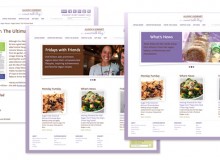Try to forget for a moment whatever preconceived ideas you might have about print and electronic communications. If you were developing a newsletter, you would want to use the most effective means, right? So let’s take a look at some of the pros and cons of each channel:
Print Newsletter
Pros
- Ability to reach everyone in your database
- Easier to rent print lists for expanded circulation
- High resolution reproduction that delights the eye
- Portability—easier to take to a coffee break, read on an airplane, etc.
- People tire of reading computer screens all day
- Less competition—fewer print newsletters being produced
- Research shows that people enjoy receiving relevant print publications
Cons
- Relatively expensive
- Slower production and distribution process
- More difficult to present timely news
- Limited tracking ability for generating marketing metrics
Electronic Newsletter
Pros
- Inexpensive
- Virtually instant distribution
- Easier to present timely news
- Trendy
- More interactive capabilities—instantly link readers to deeper, related information or direct contact with you
- Superior tracking ability for better marketing metrics
Cons
- Permission based
- Email address availability tends to be spotty even in customer databases
- Limited list rental options for expanded circulation
- Easily ignored, deleted or canceled
- Lots of competition
And the Winner Is…
There is no winner. They are different channels with different sets of pluses and minuses. The answer is a milk toasty “it depends.”
What is clear is that different channels work best in combination with one another. Our most successful newsletter clients use a blend of print and electronic media to communicate their message.
They produce quarterly print versions, usually in 8-page formats, then provide short, one- or two-topic HTML editions on a bi-weekly schedule. This approach not only allows the companies to communicate important information on a timely basis, but also demonstrates that they are multichannel players who understand today’s media environment.
— by Larry Bauer







